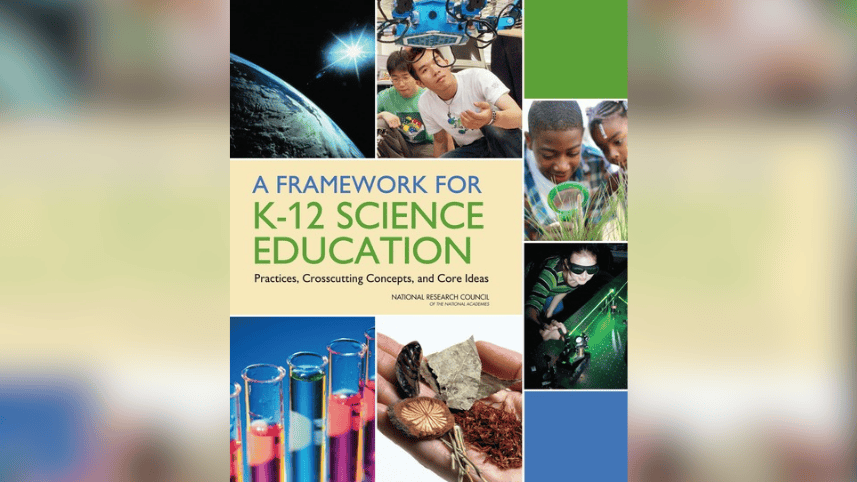Listen to the article
National Science Education Initiative Tackles Misinformation Through Collaborative Effort
The National Center for Science Education (NCSE) has joined forces with the National Academies and leading science education organizations across the United States to enhance K-12 science instruction through a significant nationwide collaborative effort.
The initiative, known as the Collaborative for Advancing Science Teaching and Learning in K–12 (CASTL K–12), utilizes the National Academies of Science, Engineering, and Medicine’s infrastructure to unite diverse stakeholders in developing coordinated strategies for science education improvement.
“It is an honor for NCSE to have a role in the CASTL K–12 Action Collaborative and be recognized among national leaders who are working tirelessly to strengthen K–12 education,” said NCSE Executive Director Amanda L. Townley. “Our dedication to helping educators overcome and address misconceptions and disinformation about climate science, evolution, and science as a whole is strengthened through this collaboration.”
The collaborative aims to develop coherent strategies for implementing science standards across states and districts, create a networked community of practice for stakeholders, share evidence-based policies and tools, and advance unified communication strategies for K-12 science and engineering education.
NCSE’s participation focuses specifically on the “Retaining and Sustaining High-Quality Science Educators” working group, which addresses the critical need for well-equipped and supported science teachers. This positioning allows NCSE to collaborate with science leaders from organizations such as OpenSciEd, the Exploratorium, state education departments, and university science teacher educators.
The timing of this collaboration coincides with growing concerns about scientific misinformation in classrooms. At the summer 2023 CASTL K–12 meeting in California, participants discussed the National Academies’ report “Understanding and Addressing Misinformation about Science,” which highlights the urgent need to equip both educators and the public with effective tools for navigating scientific misinformation.
The report examines the scope and impacts of misinformation, considers social contexts that shape information engagement, and provides guidance on interventions and policies. Its findings emphasize the need for proactive solutions to address science misinformation in K–12 settings—a challenge that aligns perfectly with NCSE’s existing work.
NCSE’s contribution to this effort centers on its DataWISE classroom resource, which helps students critically evaluate data-based claims. The tool guides students through a structured approach: determining if a claim is Worthy of attention, Inspecting the data, assessing whether interpretations make Sense, and reflecting on Emotions elicited by evidence presentation.
“Our action plan is to further promote and refine DataWISE as a way to support teachers in confronting misinformation while equipping students with the skills to recognize it,” explained Townley. “We believe that with deliberate and repeated use, students can internalize the guiding questions of DataWISE and apply them broadly when evaluating information and misinformation.”
This initiative represents a significant shift in how science education organizations are approaching the challenge of misinformation. Rather than working in isolation, these coordinated efforts leverage shared expertise and resources to create systemic change in how scientific concepts are taught and understood.
NCSE recently participated in a symposium on “Understanding and Addressing Misinformation about Science” at the National Academies in Washington, DC, further strengthening these connections. Their ongoing engagement with the National Academies and other science leadership groups underscores how NCSE’s mission aligns with broader national initiatives.
As scientific misinformation continues to present challenges to education and public understanding, this collaborative approach offers a promising framework for developing effective, evidence-based responses that can be implemented across diverse educational settings nationwide.
Fact Checker
Verify the accuracy of this article using The Disinformation Commission analysis and real-time sources.




11 Comments
As someone with a background in science education, I’m encouraged to see this kind of initiative taking shape. Equipping teachers to navigate misinformation and promote scientific literacy is vital.
Absolutely. Strengthening science education at the K-12 level will pay dividends for years to come in terms of cultivating a more scientifically literate populace.
Tackling misinformation in science education is no easy task, but this partnership between NCSE and the National Academies seems well-positioned to make meaningful progress. Kudos to all involved.
Agreed, the combined expertise and resources of these organizations should enable them to develop effective strategies for teachers. Addressing misconceptions early on is crucial.
This is an important step, but the challenge of combating misinformation in science education is an ongoing battle. I hope this collaborative can develop sustainable, scalable solutions to support teachers long-term.
This is an important initiative. Strengthening science education and combating misinformation should be a top priority. Looking forward to seeing the positive impacts this collaboration can have.
I hope this collaborative effort can help raise awareness among both teachers and students about the importance of critical thinking and fact-checking when it comes to science topics. Misinformation is a real threat that needs to be confronted.
I’m curious to learn more about the specific strategies and resources the CASTL K-12 collaborative will develop to help teachers tackle misinformation in the classroom. Addressing this challenge head-on is so important.
Yes, the details on the collaborative’s plans will be interesting to follow. Equipping teachers with the right knowledge and tools to counter misinformation is key.
This is a positive step in combating misinformation in science education. Partnering with the National Academies and other organizations can really strengthen the effort to ensure teachers have the tools and support they need.
Agreed, it’s crucial that students receive accurate, science-based information from their teachers. Misinformation can be so damaging, especially on important topics like climate change and evolution.